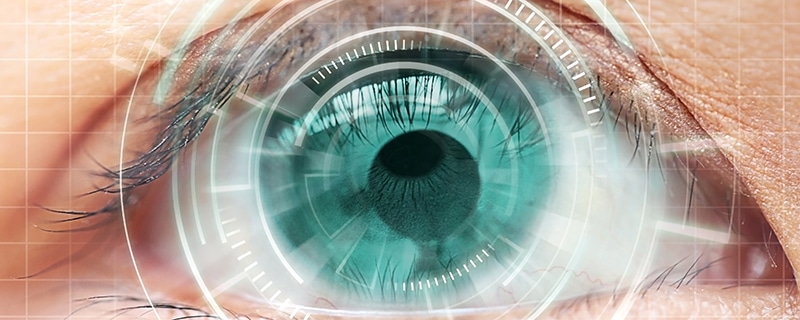
Lens Implants, LASIK Eye Surgery – Springfield, Massachusetts
The Papale Eye Center team has compiled the following list of frequently asked questions on the topics of financing, insurance, candidacy for lens implants and LASIK eye surgery, and much more. If you have further questions, contact our office in Springfield, Massachusetts to speak directly with a member of our staff.
Who is a good candidate for LASIK eye surgery?
LASIK eye surgery can treat a broad range of nearsightedness, farsightedness, and astigmatism. Appropriate candidates must be at least 18 years old and have good eye health. It is important that your prescription remains stable for one year prior to the procedure. LASIK surgery cannot be performed on any individual who is pregnant or breastfeeding.
We recommend that you schedule a free LASIK eye surgery screening at our Springfield, Massachusetts office to determine if you are a candidate.
What is the difference between LASIK eye surgery and PRK?
LASIK surgery and PRK are both effective laser procedures for vision correction. During LASIK eye surgery, a thin flap is made on the cornea. This flap is lifted and the laser treatment is performed beneath the flap. Once the laser removes the corneal tissue, the flap is replaced. Since the surface of the cornea (epithelium) is preserved, LASIK patients see well the day following their procedure. With PRK surgery, the laser treatment is performed directly on the surface of the cornea – there is no flap. PRK patients require a longer recovery period for the epithelium to heal and allow clearer vision. Although these differences in healing patterns exist, patients can feel comfortable in their choice of either PRK or LASIK eye surgery because the final results are the same. Based on your consultation and the examination performed at our office in Springfield, Massachusetts, your eye surgeon will help determine the most suitable procedure for you.
Will my vision be perfect after LASIK eye surgery?
While laser vision correction has proven to have an overwhelming success rate, there are no guarantees of a perfect visual outcome. The goal of LASIK eye surgery is to reduce dependency on glasses and/or contact lenses. The vast majority of patients can see better than 20/30 without correction, many at 20/20 or better. Remember, how you heal, your degree of correction, and your overall eye health are all factors for your final outcome. The most satisfied patients are those who have realistic expectations about their final vision.
* Click on the questions to read more…
Should I have both eyes corrected at one time?
Yes. Most patients choose to have both eyes treated at the same time since the results are predictable and the procedure is safe. Treating the eyes together allows the patient to experience only one healing period, minimizing any postoperative discomfort and inconvenience. If you decide to have one eye done at a time, you and your doctor will decide how long to wait before having surgery on the other eye.
Is the LASIK procedure painful?
No. Before the procedure, the surface of the eye is numbed with anesthetic eye drops. Thus, most LASIK eye surgery patients report no pain during their treatment. For one to two days after LASIK eye surgery, most people report an increased sensitivity to light, dry eyes, and a somewhat “gritty” sensation. These temporary symptoms are perfectly normal and will usually disappear within 24-48 hours.
Visit our LASIK surgery page to find out more or give us a call at (413) 782-0030.
Does insurance cover the cost of LASIK surgery?
Since LASIK eye surgery is considered an elective procedure, most insurance companies do not cover the cost of the surgery. The best way to determine if the procedure is covered is to contact your insurance company directly.
At Papale Eye Center, we offer multiple LASIK eye surgery financing options. Our LASIK coordinator can discuss the options with you at your free LASIK eye surgery screening . Contact our office in Springfield, Massachusetts to learn more about LASIK financing options.
Will I have to wear glasses after cataract surgery?
Standard (single vision) lens implants do not have the ability to provide a full range of vision. Thus, most people who have single vision lens implants will need glasses after cataract surgery. However, the AcrySof® ReSTOR® lens, a new advance in lens technology, is designed to improve your overall visual outcome. The ReSTOR® lens provides focus points at varying distances, providing sharper uncorrected vision throughout a full range of vision – from near to far. Based on FDA clinical data, 80 percent of patients never have to wear glasses after receiving ReSTOR® lens implants. At your cataract exam, a Papale Eye Center surgeon can discuss with you whether or not you are a candidate for this revolutionary new lens implant.
Does insurance cover the cost of the ReSTOR® lens implant?
Insurance policies vary, but Medicare, supplemental insurance, and private insurance will typically cover the basic cataract surgery procedure with a conventional lens implant. However, if you elect to have an AcrySof® ReSTOR® lens implanted, there is an additional cost that is not covered by insurance or Medicare. You can opt to pay the difference for the added benefits of the AcrySof® ReSTOR® IOL.
At the Papale Eye Center, we offer multiple financing options. Our surgical coordinator can discuss the options with you when you schedule your surgery. To find out more about lens implant or LASIK eye surgery financing, contact our eye center in Springfield, Massachusetts today.
